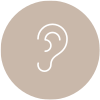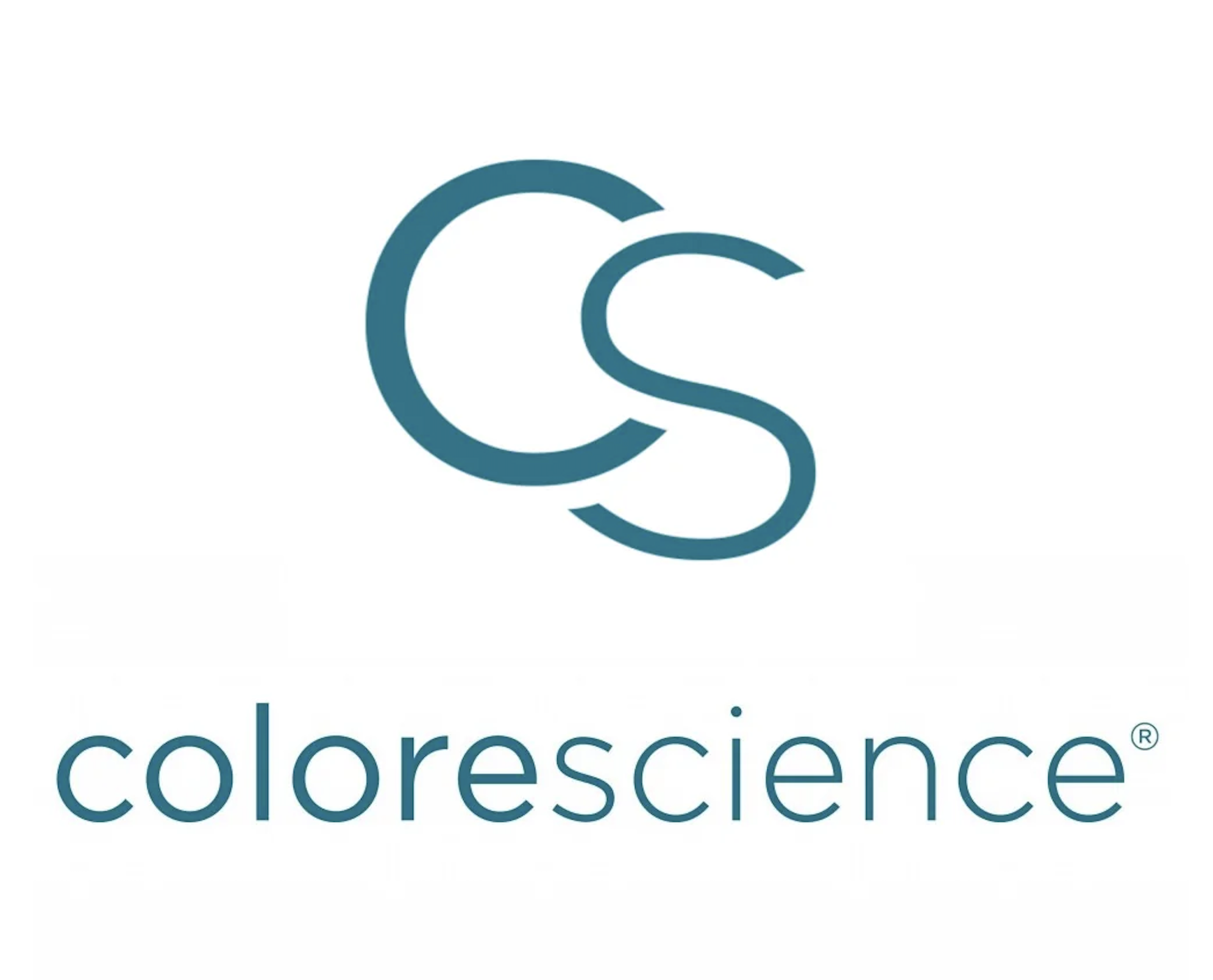Botox
Botox
Refresh Your Look with Botox
• Botox is a quick, noninvasive, FDA-approved treatment for smoothing moderate to severe frown lines, forehead lines, and crow’s feet.
• It’s now FDA-approved to treat the appearance of jowls by targeting “platysma bands” in the neck area, which can contribute to a sagging jawline.
• Tiny injections weaken specific muscles, reducing their movement and smoothing wrinkles for a refreshed look.
• Botox in the jawline area can help create a smoother, more defined jawline by relaxing the platysma muscles.
Simple, effective, and clinically approved—Botox helps you feel confident in your skin.
Three benefits to getting Botox:
Improve lines and wrinkles, youthful appearance
Predictable
results
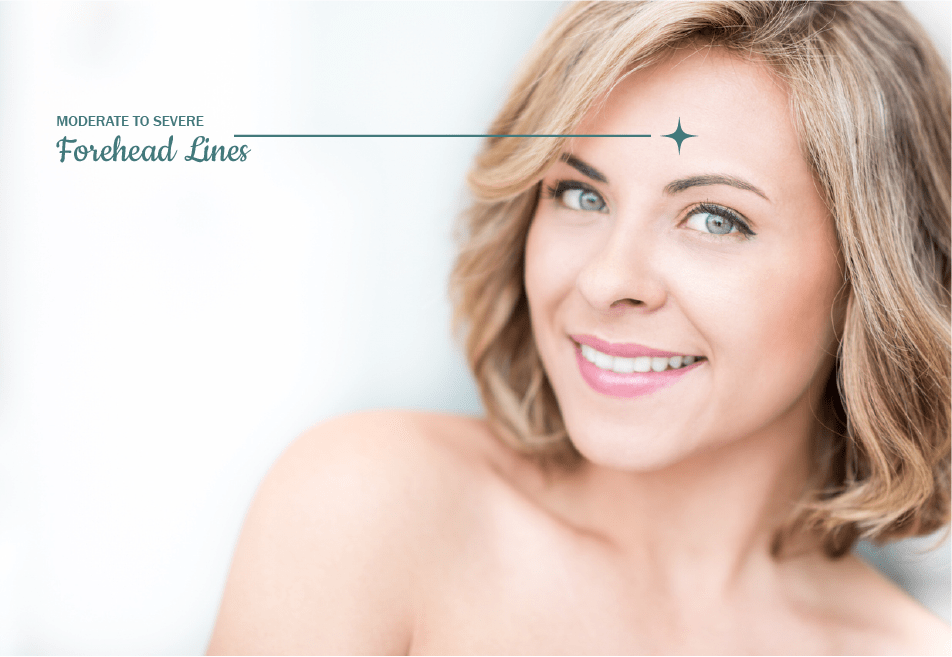
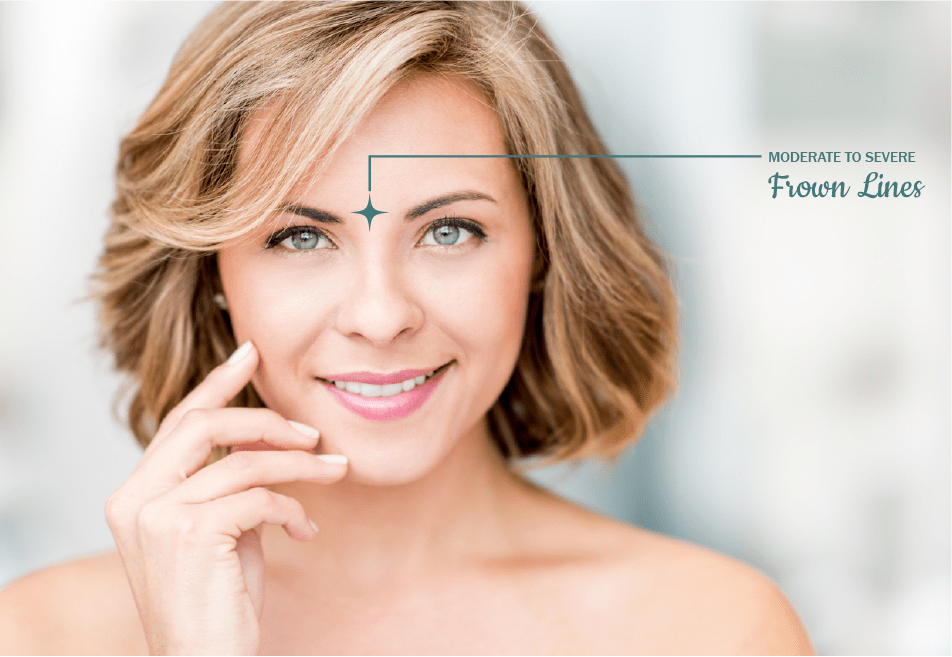
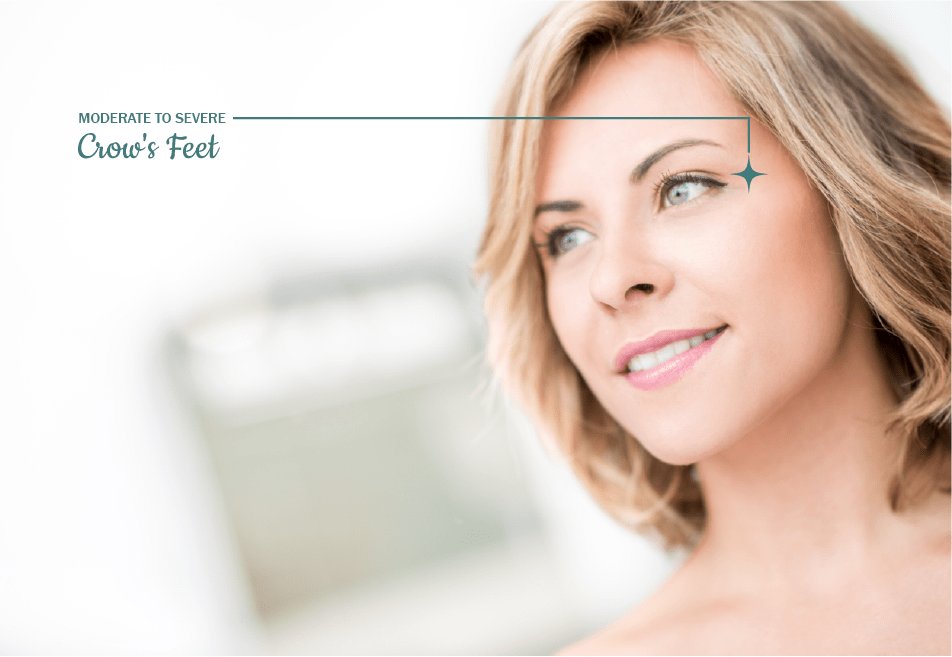
Typical Appointment Length:
When will I see results?
How long do results last?
What areas are treated?
Eyes
Crow’s Feet
Forehead
Frown Lines
Forehead Lines
Jawline
See the Results:
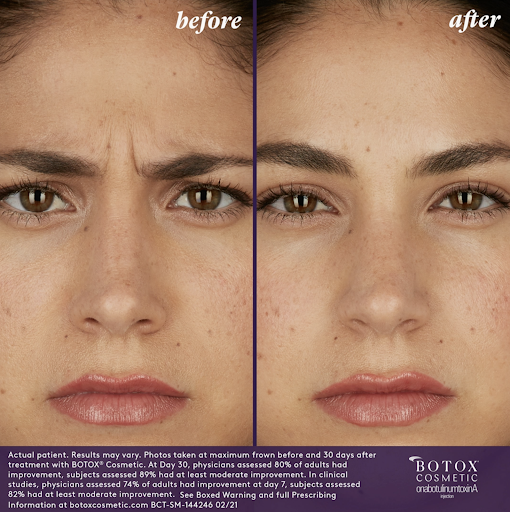
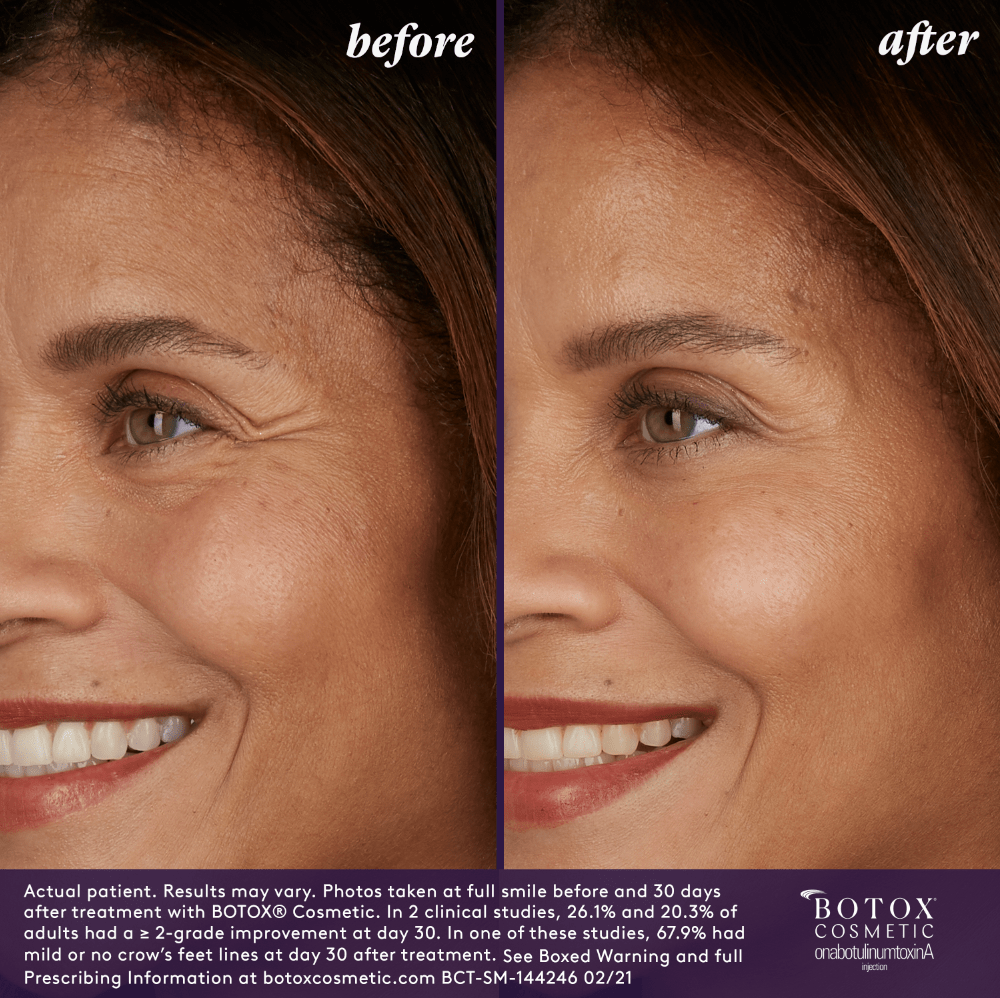
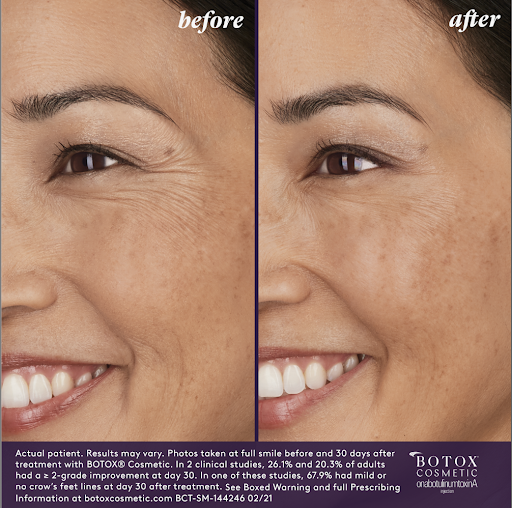
Is Botox only for Women?
No! A number of men are choosing treatments for their appearance too.
What can I expect from the procedure?
All Botox and consult appointments are scheduled with a trained medical provider. During each treatment visit all your questions, concerns and expectations will be addressed. Our provider will recommend the best treatment plan to achieve your goals.
During your treatment, you may feel a slight pinching sensation. Once the treatment is complete, you may notice small, red bumps that should resolve in 30-60 minutes.
If bruising occurs, it will be very minimal and should resolve after a couple of days. To reduce the risk of bruising avoid ibuprofen, aspirin, and any over-the-counter supplement not prescribed by a doctor before your treatment.
Is there downtime after Botox?
- There is minimal downtime, and you may return to most normal daily activities.
- No exertion for the next 24 hours.
- Remain in an upright position four hours after the treatment.
- Recommend scheduling treatments within two to four weeks prior to any special events.
Where can I learn more?
Make an appointment with Stellis Health to discuss your options.
Visit botoxcosmetic.com for more information.
BOTOX® Cosmetic (onabotulinumtoxinA) Important Information
Indications
BOTOX® Cosmetic (onabotulinumtoxinA) is indicated in adult patients for the temporary improvement in the appearance of:
– Moderate to severe glabellar lines associated with corrugator and/or procerus muscle activity
– Moderate to severe lateral canthal lines associated with orbicularis oculi activity
– Moderate to severe forehead lines associated with frontalis activity
IMPORTANT SAFETY INFORMATION, INCLUDING BOXED WARNING
WARNING: DISTANT SPREAD OF TOXIN EFFECTPostmarketing reports indicate that the effects of BOTOX® Cosmetic and all botulinum toxin products may spread from the area of injection to produce symptoms consistent with botulinum toxin effects. These may include asthenia, generalized muscle weakness, diplopia, ptosis, dysphagia, dysphonia, dysarthria, urinary incontinence, and breathing difficulties. These symptoms have been reported hours to weeks after injection. Swallowing and breathing difficulties can be life threatening and there have been reports of death. The risk of symptoms is probably greatest in children treated for spasticity, but symptoms can also occur in adults treated for spasticity and other conditions, particularly in those patients who have an underlying condition that would predispose them to these symptoms. In unapproved uses and approved indications, cases of spread of effect have been reported at doses comparable to those used to treat cervical dystonia and spasticity and at lower doses.CONTRAINDICATIONS
BOTOX® Cosmetic is contraindicated in the presence of infection at the proposed injection site(s) and in individuals with known hypersensitivity to any botulinum toxin preparation or to any of the components in the formulation.
WARNINGS AND PRECAUTIONS
Lack of Interchangeability Between Botulinum Toxin Products
The potency units of BOTOX® Cosmetic are specific to the preparation and assay method utilized. They are not interchangeable with other preparations of botulinum toxin products and, therefore, units of biological activity of BOTOX® Cosmetic cannot be compared to nor converted into units of any other botulinum toxin products assessed with any other specific assay method.
Spread of Toxin Effect
Please refer to Boxed Warning for Distant Spread of Toxin Effect.
No definitive serious adverse event reports of distant spread of toxin effect associated with dermatologic use of BOTOX® Cosmetic at the labeled dose of 20 Units (for glabellar lines), 24 Units (for lateral canthal lines), 40 Units (for forehead lines with glabellar lines), 44 Units (for simultaneous treatment of lateral canthal lines and glabellar lines), and 64 Units (for simultaneous treatment of lateral canthal lines, glabellar lines, and forehead lines) have been reported. Patients or caregivers should be advised to seek immediate medical care if swallowing, speech, or respiratory disorders occur.
Serious Adverse Reactions With Unapproved Use
Serious adverse reactions, including excessive weakness, dysphagia, and aspiration pneumonia, with some adverse reactions associated with fatal outcomes, have been reported in patients who received BOTOX® injections for unapproved uses. In these cases, the adverse reactions were not necessarily related to distant spread of toxin, but may have resulted from the administration of BOTOX® to the site of injection and/or adjacent structures. In several of the cases, patients had pre-existing dysphagia or other significant disabilities. There is insufficient information to identify factors associated with an increased risk for adverse reactions associated with the unapproved uses of BOTOX®. The safety and effectiveness of BOTOX® for unapproved uses have not been established.
Hypersensitivity Reactions
Serious and/or immediate hypersensitivity reactions have been reported. These reactions include anaphylaxis, serum sickness, urticaria, soft-tissue edema, and dyspnea. If such reactions occur, further injection of BOTOX® Cosmetic should be discontinued and appropriate medical therapy immediately instituted. One fatal case of anaphylaxis has been reported in which lidocaine was used as the diluent and, consequently, the causal agent cannot be reliably determined.
Cardiovascular System
There have been reports following administration of BOTOX® of adverse events involving the cardiovascular system, including arrhythmia and myocardial infarction, some with fatal outcomes. Some of these patients had risk factors including pre-existing cardiovascular disease. Use caution when administering to patients with pre-existing cardiovascular disease.
Increased Risk of Clinically Significant Effects With Pre-existing Neuromuscular Disorders
Individuals with peripheral motor neuropathic diseases, amyotrophic lateral sclerosis, or neuromuscular junction disorders (eg, myasthenia gravis or Lambert-Eaton syndrome) should be monitored when given botulinum toxin. Patients with neuromuscular disorders may be at increased risk of clinically significant effects including generalized muscle weakness, diplopia, ptosis, dysphonia, dysarthria, severe dysphagia, and respiratory compromise from onabotulinumtoxinA (see Warnings and Precautions).
Dysphagia and Breathing Difficulties
Treatment with BOTOX® and other botulinum toxin products can result in swallowing or breathing difficulties. Patients with pre-existing swallowing or breathing difficulties may be more susceptible to these complications. In most cases, this is a consequence of weakening of muscles in the area of injection that are involved in breathing or oropharyngeal muscles that control swallowing or breathing (see Boxed Warning).
Pre-existing Conditions at the Injection Site
Caution should be used when BOTOX® Cosmetic treatment is used in the presence of inflammation at the proposed injection site(s) or when excessive weakness or atrophy is present in the target muscle(s).
Dry Eye in Patients Treated With BOTOX® Cosmetic
There have been reports of dry eye associated with BOTOX® Cosmetic injection in or near the orbicularis oculi muscle. If symptoms of dry eye (eg, eye irritation, photophobia, or visual changes) persist, consider referring patients to an ophthalmologist.
Human Albumin and Transmission of Viral Diseases
This product contains albumin, a derivative of human blood. Based on effective donor screening and product manufacturing processes, it carries an extremely remote risk for transmission of viral diseases and variant Creutzfeldt-Jakob disease (vCJD). There is a theoretical risk for transmission of Creutzfeldt-Jakob disease (CJD), but if that risk actually exists, the risk of transmission would also be considered extremely remote. No cases of transmission of viral diseases, CJD or vCJD have ever been identified for licensed albumin or albumin contained in other licensed products.
ADVERSE REACTIONS
The most frequently reported adverse reactions following injection of BOTOX® Cosmetic for glabellar lines were eyelid ptosis (3%), facial pain (1%), facial paresis (1%), and muscular weakness (1%).
The most frequently reported adverse reaction following injection of BOTOX® Cosmetic for lateral canthal lines was eyelid edema (1%).
The most frequently reported adverse reactions following injection of BOTOX® Cosmetic for forehead lines with glabellar lines were headache (9%), brow ptosis (2%), and eyelid ptosis (2%).
DRUG INTERACTIONS
Co-administration of BOTOX® Cosmetic and aminoglycosides or other agents interfering with neuromuscular transmission (eg, curare-like compounds) should only be performed with caution as the effect of the toxin may be potentiated. Use of anticholinergic drugs after administration of BOTOX® Cosmetic may potentiate systemic anticholinergic effects.
The effect of administering different botulinum neurotoxin products at the same time or within several months of each other is unknown. Excessive neuromuscular weakness may be exacerbated by administration of another botulinum toxin prior to the resolution of the effects of a previously administered botulinum toxin.
Excessive weakness may also be exaggerated by administration of a muscle relaxant before or after administration of BOTOX® Cosmetic.
USE IN SPECIFIC POPULATIONS
There are no studies or adequate data from postmarketing surveillance on the developmental risk associated with use of BOTOX® Cosmetic in pregnant women. There are no data on the presence of BOTOX® Cosmetic in human or animal milk, the effects on the breastfed child, or the effects on milk production.
Please see BOTOX® Cosmetic full Prescribing Information including Boxed Warning and Medication Guide.
Amy
I have had Botox on my forehead and the lines around my eyes.
I also received Juvederm filler around my mouth. I am super pleased with my results. Sheila McIntire and Marie at Stellis Health Medical Skin were awesome to work with. Very professional, and answered all my questions. The procedure was painless and the results are fantastic. Will be going back to get more procedures at Stellis. I also want to send a special shout out to Amy the manager at the Skin care center. She answered all my questions about what products I should be using. She helped me decide to go with Obaji.
I could not be happier with my results. Thank you Stellis Health Skin Care, you are top notch!

Amy
I have had Botox on my forehead and the lines around my eyes.
I also received Juvederm filler around my mouth. I am super pleased with my results. Sheila McIntire and Marie at Stellis Health Medical Skin were awesome to work with. Very professional, and answered all my questions. The procedure was painless and the results are fantastic. Will be going back to get more procedures at Stellis. I also want to send a special shout out to Amy the manager at the Skin care center. She answered all my questions about what products I should be using. She helped me decide to go with Obaji.
I could not be happier with my results. Thank you Stellis Health Skin Care, you are top notch!


